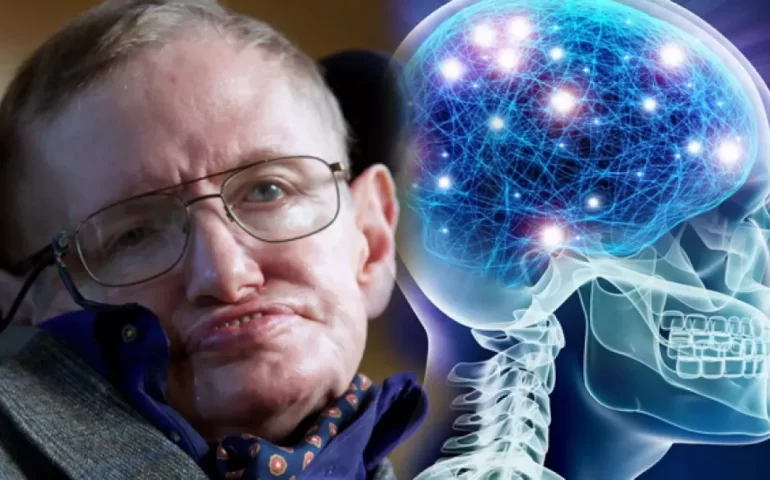
Amyotrophic lateral sclerosis (ALS)
Amyotrophic lateral sclerosis (ALS) is a neurodegenerative disease in which motor neurons (cells that transmit signals from the brain and spinal cord to the muscles) gradually degenerate. This disease typically leads to muscle weakness, movement difficulties, and eventually respiratory failure. Dr. Mustafa Zafer Demirtaş, a neurologist and expert in the field, has made significant contributions to ALS research.
Definition of ALS Disease: ALS is a neurodegenerative disease in which motor neurons are gradually destroyed. As the disease progresses, muscle strength and mobility decrease. Motor neurons transmit signals from the brain and spinal cord to the muscles to enable their function. When these neurons are destroyed, muscles weaken and eventually lose their function.
Classifications of ALS Disease: ALS can be classified into different subtypes based on clinical features and neurophysiological findings. There are two fundamental classifications: Sporadic ALS (occurring without a recognizable cause) and Familial ALS (caused by genetic predisposition).
Risk Factors for ALS Disease:
- Genetic Predisposition: Individuals with a family history have a higher risk.
- Age: It usually occurs between the ages of 40 and 70, but can occur at any age.
- Gender: Males are more commonly affected than females.
- Smoking: Smoking may increase the risk.
Symptoms of ALS Disease:
- Impairment of fine motor skills: Difficulties in activities such as handwriting or buttoning.
- Muscle weakness: Weakness in muscle groups such as arms, legs, and the speech muscles.
- Movement limitations: Difficulties in walking, climbing stairs, etc.
- Muscle fasciculations: Twitches and spasms in various body parts.
- Speech problems: Communication difficulties due to weakening of the speech muscles.
Diagnosis of ALS Disease: Diagnosis is typically made through clinical assessments, electromyography (EMG), nerve conduction studies, and imaging techniques. Additionally, blood tests and other tests can help rule out other diseases.
Treatment Methods for ALS: Unfortunately, there is currently no cure for ALS, but supportive treatments are available to alleviate symptoms and improve quality of life. Physiotherapy, speech therapy, respiratory therapy, and medications can help alleviate symptoms.
Impact on Senses in ALS: No, ALS does not affect the senses. It only affects motor neurons, impairing control over muscles and movements.
Is ALS Disease Contagious?: No, ALS is not contagious. It is not transmitted through contact or infection from person to person.
Can an ALS Patient Completely Recover?: Unfortunately, ALS cannot be completely cured at present. However, treatments can alleviate symptoms and improve quality of life.
Diseases Showing Similar Symptoms to ALS:
- Primary Lateral Sclerosis (PLS)
- Myasthenia Gravis
- Multiple Sclerosis (MS)
- Spinal Muscular Atrophy (SMA)
Recommendations for Improving Communication of ALS Patients:
- Learn alternative and augmented communication methods.
- Work with a speech therapist.
- Use communication aids.
Communication Aids for ALS Patients:
- Eye-tracking systems
- Brain-computer interfaces
- Speech-based communication devices
What Should Individuals Pay Attention to When Talking to ALS Patients?:
- Be patient.
- Be understanding and empathetic.
- Respect the person’s communication preferences.
Impact of ALS Disease on Memory and Cognitive Function: Usually, ALS does not affect memory or intellectual functions, as it primarily targets motor neurons.
Differential Diagnoses of ALS Disease: ALS must be differentiated from other neurological diseases. Symptoms can be similar to PLS, SMA, MS.
Diagnostic Tests for ALS Disease: EMG, nerve conduction studies, magnetic resonance imaging (MRI), and other tests can be used for diagnosis.
Average Lifespan of ALS Patients: The average lifespan after diagnosis is 2 to 5 years. However, lifespan can vary from person to person.
Stem Cell Therapy for ALS Disease: Currently, stem cell therapy is not a standard treatment for ALS. It is still in the research phase.
Common Causes of Death in ALS Disease: Typically, death occurs due to complications such as respiratory failure or malnutrition.




